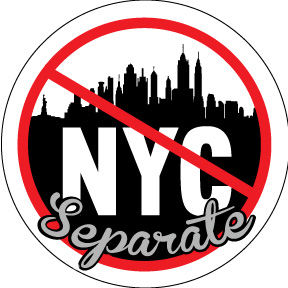By THOMAS KAPLAN
ALBANY — Gov. Andrew M. Cuomo’s behind-the-scenes efforts to shore up support for his handling of an anticorruption panel inadvertently landed him in an even greater bind last week, prompting a scathing rebuke from the top federal prosecutor in Manhattan.
But it also shined a spotlight on a covert public relations tactic that has been used by Mr. Cuomo’s aides, who are keenly sensitive to how their boss will be portrayed in the news media.
The strategy — getting allies to send journalists laudatory statements, seemingly of their own volition — is one that, by showing no fingerprints of the governor’s aides, would seem to increase the credibility of the praise.
Reporters were bombarded in February, for example, with statements from supporters of a plan by the governor to finance college classes for prison inmates, which he later abandoned after resistance from lawmakers.That same month, when Mr. Cuomo and Mayor Bill de Blasio were skirmishing over how to pay for an expansion of prekindergarten, a gaggle of mayors and county executives seemed to spontaneously throw their support behind Mr. Cuomo.
One of the mayors who sided with Mr. Cuomo was Mike Spano, the mayor of Yonkers. On Feb. 12, his office sent an unsolicited statement to reporters in which he asserted that Mr. de Blasio’s proposal, which called for raising taxes on wealthy city residents, would cause half of the state’s children to be “left out in the cold” and would create “more inequality, not less.”
Mr. Cuomo’s aides told multiple news organizations that they had not coordinated that barrage of statements, which produced biting headlines like “Upstate pols reject de Blasio pre-K tax plan”.
But email correspondence newly obtained by The New York Times under the state’s Freedom of Information Law shows that the governor was indeed involved in promoting the criticism of Mr. de Blasio.
At 7:29 p.m. on Feb. 12, Betsey Ball, the governor’s director of legislative affairs, sent an email to Mr. Spano’s chief of staff, Denise Egiziaco, with the subject line: “Thank you.” In the body of the message, she included email addresses for more than 200 journalists and news organizations.
Three minutes later, Ms. Egiziaco confirmed receiving the list. Mr. Spano’s office sent reporters the statement at 8:18 p.m., and Ms. Egiziaco forwarded it to Ms. Ball at 8:20.
A spokeswoman for Mr. Spano, Christina Gilmartin, said the issue of prekindergarten was of interest beyond Yonkers, and described the sharing of email addresses as a common practice among government press offices.
“He just wanted to support the governor,” Ms. Gilmartin said, adding, “They have a more expansive press list than we do, obviously.”
Asked to reconcile the emails with its previous denials that it had coordinated the statements, the governor’s office did not directly respond. A spokesman for Mr. Cuomo, Richard Azzopardi, said in an email, “In building our case to the people, we believe it’s important to share the views of those we’ve consulted with who have helped inform our positions and form our policy stances.”
Politicians routinely issue news releases containing favorable quotations from supporters, which often require extensive hidden negotiations — though Mr. Cuomo’s aides have sometimes simply ghostwritten them.
But no batch of synchronous statements has drawn as much scrutiny as those released on July 28 by members of the now-defunct Moreland Commission, an anticorruption panel.
The statements followed a July 23 report in The Times that Mr. Cuomo’s office had deeply compromised the work of the Moreland Commission, intervening repeatedly when it focused on groups with ties to Mr. Cuomo.
Some commissioners were asked by people with ties to the governor to release supportive statements, according to people familiar with the matter who insisted on anonymity for fear of reprisal.
The Times Union of Albany reported last week that Joseph Percoco, a longtime Cuomo aide who is now managing the governor’s re-election campaign, offered to provide drafts of statements to some commissioners.
But the flurry of statements from commissioners backing Mr. Cuomo prompted federal prosecutors to warn of the possibility of criminal witness tampering or obstruction of justice charges, given the ongoing investigation.
The statements by Moreland Commission members were not the only ones that Mr. Cuomo’s office orchestrated in the aftermath of The Times’s story.
Reporters received a flood of announcements from his office: an award bestowed upon a food safety laboratory; the creation of a group to study issues pertaining to the craft beer industry; and the governor’s signing of a bill to change the wheelchair symbol designating accessibility to people with disabilities.
Several advocates separately emailed reporters to say they were pleased that Mr. Cuomo had signed the bill to change the accessibility symbol.
Kevin Cleary, a lobbyist for an association of nonprofit groups that provide services to people with disabilities, said a press aide in Mr. Cuomo’s office had asked for statements, and advocates were eager to voice their support for the bill.
“Nothing out of standard practice,” he said. “We were happy to promote it.”
